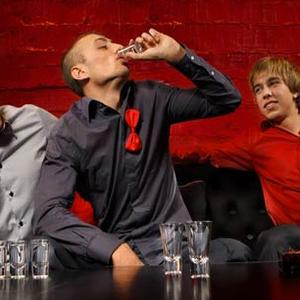
A love of sweets might predict a fondness for the bottle, a new study suggests.
Researchers used functional MRI technology to scan the brains of 16 young adults while they drank either plain water or an intensely sweet mixture of sugar in water. Their brain activity was then compared to their drinking patterns.
There was a strong association between the participants' response to the sweet water in their brain's left orbitofrontal area -- part of the brain's reward system - and binge drinking, according to the study published in the journal Alcoholism: Clinical & Experimental Research.
"Specifically, the trend was such that those who drank more alcohol on drinking days had stronger left orbitofrontal responses to the intensely sweet water," study corresponding author David Kareken, deputy director of the Indiana Alcohol Research Center and a professor in the department of neurology at Indiana University School of Medicine, said in a journal news release.
How study participants rated their preference for the sweetened water also affected this relationship, "so that both the brain response itself, as well as liking of the sugared water, collectively correlated with drinking behaviour," Kareken explained.
Brain response revealing
The findings mean that a strong response to sweet tastes in the brain's reward centre may be an important indicator of an increased risk for alcoholism, the study authors noted.
While previous human and animal studies have noted this association between preferences for both sweet tastes and alcohol, Kareken believes this is the first study to examine the human brain mechanism behind this connection.
"While much more research needs to be done to truly understand the commonalities between sweet-liking and alcoholism, and while alcoholism itself is likely the product of several mechanisms, our findings may implicate a particular brain region that is more generally involved in coding for the value of 'primary' rewards such as pleasures," Kareken said.
"In a more practical sense, the findings are compelling evidence that the brain response to an intensely sweet taste may be used in future research to test for differences in the reward circuits of those at risk for alcoholism. This may be particularly useful since alcohol itself is not an easy drug to work with in this kind of human imaging, and since alcohol exposure is not ethically appropriate for use in all at-risk [study participants], or in [those] trying to abstain from drinking."
More information
The US National Institute on Alcohol Abuse and Alcoholism has more about drinking disorders.




 Publications
Publications
 Partners
Partners










